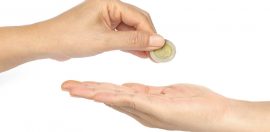Towers response shows politicians need to be reacquainted with the humble power of soap

15 July 2020 at 6:19 pm
The pandemic has been a stark reminder that hygiene products are not “nice-to-haves” but “must haves” – yet soap is rarely included in government aid supplied to Australians living in crisis conditions, writes Kate Austin.
The initial aid supplied to the residents of the towers locked down in Melbourne provided insight into what people who have not experienced disadvantage think is critical… and what they think is not.
Hand soap was not provided in the first box of supplies given to residents by the government, this is despite soap being the most effective, not to mention cost-effective, method of ensuring COVID-19 on skin is not passed onto everyone and everything we touch. Pads and tampons were not supplied either and there were complaints from residents that bottles of sanitiser placed in entryways were running out.
Some residents may have not had access to hygiene and sanitary products for two or more days. I know this because my charity was asked to provide hygiene kits to the residents isolating in the towers. That was not a government request. At first, it came from a local mosque that had contact with people stuck inside. They asked for 700 hygiene kits. Later, a large charity involved in collecting supplies requested 3,000.
I think the community’s response to this emergency has been incredible. There have been so many stories of nurses, charity workers, volunteers and everyday people going out of their way to make the experience of residents stuck in the towers less traumatic and disruptive. There were gaps, but not for a lack of people trying their best to fill them in.
However, for me, the initial aid response raised an important consideration I’d like to share with others.
Soap is not a luxury. And while the makers of hygiene products may like us to think otherwise, it never should be. Unfortunately, one in six Australians are forced to choose between buying food and personal hygiene products every week.
And yet, I have not heard one politician throughout this pandemic bring up the problem that so many people in Australia simply cannot afford the products that will keep themselves and their communities safe from COVID-19, whether that’s hand sanitiser, masks or soap. Or if they do purchase these goods it will be at the expense of missing out on other basics. Politicians have also not offered a solution.
I’m not surprised. Soap, sanitary items and toothpaste are rarely included in the government aid supplied to Australians living in crisis conditions. Hygiene products were missing from the menu when supplies were handed out to Australians who had been displaced from their homes due to last summer’s bushfires. My charity provided 30,000 hygiene kits to residents during that period, and that was not at the request of governments.
People went long enough without these items for one woman to speak up at a community meeting, saying she had received so much food, but what she wouldn’t give to wash the smell of smoke – the same smoke from the fire that burnt down her house – out of her hair.
I can relate to this need. I experienced homelessness as a young person after fleeing a violent living situation with nothing but my toothbrush. I found that my inability to afford hygiene products transformed the way I participated in the world.
I went from being the girl at school who was the lead in the play, the singer in the band, to being the girl who smelt funny, hadn’t brushed her hair and had to scrounge tampons and pads off her friends. My inability to afford these items eroded my confidence and my sense of dignity.
This pandemic, however, has been a stark reminder that hygiene products, in their most basic form, are not “nice-to-haves” but “must haves”. While dignity and confidence are important, stopping the spread of coronavirus is life and death.
I will also say that relying on the kindness of strangers to supply hygiene goods in an emergency, perhaps unlike other items, has its own safety risks. Supplying people with hand sanitiser that is alcohol based, deodorant that is in an aerosol can, razors and tampons can have unintended, adverse results.
My charity and others work really hard to supply goods that will be used by people safely. Consultation and forethought are the keys to supplying the right things, not just things.
In that vein, I hope that regrouping from these crises we can discuss how our aid response can improve into the future. We need to center that conversation on the experiences of those people who were worst affected and ask “What were the things people needed from day one?”.
Food is important and so is shelter, but do not forget the humble power of a cake of soap.








